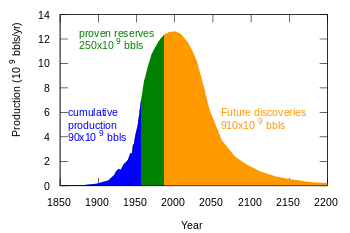David Goodstein
David Louis Goodstein (born April 5, 1939)[1] is an American physicist and educator. From 1988 to 2007 he served as Vice-provost of the California Institute of Technology (Caltech), where he is also a professor of physics and applied physics, as well as (since 1995) the Frank J. Gilloon Distinguished Teaching and Service Professor.[2]
David L. Goodstein | |
|---|---|
| Born | David Louis Goodstein April 5, 1939 Brooklyn, New York, U.S. |
| Nationality | American |
| Alma mater | Brooklyn College University of Washington |
| Awards | Oersted Medal (2000) John P. McGovern Medal |
| Scientific career | |
| Fields | Physics, applied physics |
| Institutions | California Institute of Technology |
| Doctoral advisor | J. Gregory Dash |
Life and work
Goodstein was educated at Brooklyn College (BS, 1960) and at the University of Washington (Ph.D., 1965).[3] He has written several books, including States of Matter (1975) (reprinted in a Dover paperback edition) and Feynman’s Lost Lecture (1996). In the 1980s he was the director and host of The Mechanical Universe, an educational television series on physics that has been adapted for high school use and translated into many other languages. The series has been broadcast on hundreds of public broadcasting stations and has garnered more than a dozen prestigious awards, including the 1987 Japan Prize for television.[4]
In recent times, while continuing to teach and conduct research in experimental condensed matter physics, he has turned his attention to issues related to science and society. In articles and speeches, he has addressed conduct and misconduct in science,[5] and issues related to fossil fuels and the climate of Planet Earth. In 2004 he published a best-selling book Out of Gas: The End of the Age of Oil.
In 1999, Goodstein was awarded the Oersted Medal of the American Association of Physics Teachers,[6] and in 2000, the John P. McGovern Medal of the Sigma Xi Society.[7] He has served on and chaired numerous scientific and academic panels, including the National Advisory Committee to the Mathematical and Physical Sciences Directorate of the National Science Foundation. He is a founding member of the Board of Directors of the California Council on Science and Technology.
In 2015 he published Thermal Physics: Energy and Entropy.[8]
Publications
Books
- 1975 States of matter. Englewood Cliffs, N.J.: Prentice-Hall (reissued by Dover Publications, 1985; unabridged and corrected republication, 2014).
- 1985 The mechanical universe: introduction to mechanics and heat (Richard P. Olenick, Tom M. Apostol, David L. Goodstein). New York: Cambridge University Press (1st pbk. ed. 2007).
- 1985 Beyond the mechanical universe: from electricity to modern physics (Richard P. Olenick, Tom M. Apostol, David L. Goodstein). New York: Cambridge University Press (1st pbk. ed. 2007).
- 1986 The Mechanical Universe, Mechanics and Heat, Advanced Edition, textbook (Steven C. Frautschi, Richard P. Olenick, Tom M. Apostol, David L. Goodstein). New York: Cambridge University Press (1st pbk. ed. 2008).
- 1996 Feynman's lost lecture: the motion of planets around the sun (David L. Goodstein and Judith R. Goodstein). New York: Norton.
- 2004 Out of gas: the End of the Age of Oil. New York: Norton.
- 2010 On fact and fraud: cautionary tales from the front lines of science. Princeton, N.J.: Princeton University Press.
- 2011 Adventures in Cosmology (David Goodstein, editor). Singapore: World Scientific Publishing. 2012 reprint
- 2012 Climate Change and the Energy Problem: Physical Science and Economics Perspective (David Goodstein & Michael Intriligator). Singapore: World Scientific Publishing (2nd Edition, 2017).
- 2012 (by Paolo Saraceno). Beyond the stars: our origins and the search for life in the universe (David Goodstein, translator). Singapore; Hackensack, N.J.: World Scientific Publishing.
- 2015 Thermal physics: energy and entropy. Cambridge, UK; New York, NY: Cambridge University Press.
- 2018 Science of the Earth, Climate, and Energy (Milton W. Cole, Angela D. Lueking, David L. Goodstein). New Jersey: World Scientific Publishing.
Articles, Book chapters, Reviews
- 1989 "Richard P. Feynman, Teacher". Physics Today, 42(2):70–75. doi:10.1063/1.881195.
- 2000 (with Judith Goodstein). "Richard Feynman and the History of Superconductivity". Physics in Perspective, 2(1):30–47. doi:10.1007/s000160050035.
- 2011 "Quantum Man: Richard Feynman’s Life in Science" (Lawrence M. Krauss). Reviewed by David L. Goodstein. Physics Today, 64(3):55. doi:10.1063/1.3563821.
- 2011 "How Science Works", in: Reference Manual on Scientific Evidence (National Research Council). Washington, DC: The National Academies Press (3nd Edition), pp. 37–54. preprint
References
- American Men & Women of Science, Volume 3, Thomson/Gale, 2009, p. 230
- "Interview with David L. Goodstein - CaltechOralHistories". Retrieved 13 August 2019.
- "CaltechOralHistories, The Caltech Institute Archives". Retrieved 13 August 2019.
- http://www.nhk.or.jp/jp-prize/1987/main.html (Japanese)
- When Scientists Sin (Scientific American, Michael Shermer, July 1, 2010)
- Oersted Medal (AAPT) – Award Winners
- "Sigma Xi Prizes and Awards". Retrieved 13 August 2019.
- The Mystery of Thermal Physics (by David Goodstein, cambridgeblog.org)
External links
| Wikiquote has quotations related to: David Goodstein |
- The End of the Age of Oil - article adapted from a talk by Caltech vice provost and professor of physics David Goodstein.
- The Mechanical Universe - A series of video lectures on physics, with David Goodstein as the lecturer.
- Dr. David Goodstein's Homepage - Includes a biography on him and some of his recent publications.
